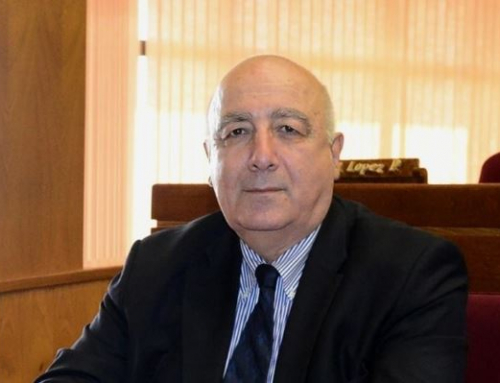 Cases of Eviction of IDPs from different buildings by means of police have recently become rather frequent. With regard to each of such evictions, the government is referring to the State Strategy and Action Plan for IDPs and declares that IDPs are offered with rehabilitated apartments in return. On the other hand, IDPs consider that the process of eviction is unsubstantiated and housings offered are inadequate.
Cases of Eviction of IDPs from different buildings by means of police have recently become rather frequent. With regard to each of such evictions, the government is referring to the State Strategy and Action Plan for IDPs and declares that IDPs are offered with rehabilitated apartments in return. On the other hand, IDPs consider that the process of eviction is unsubstantiated and housings offered are inadequate.
What are the state’s obligations towards IDPs? According to the State Strategy and Action Plan, promotion of a dignified life for IDPs, their social and economic integration and improvement of their housing conditions as is one of its objectives, which also entails the obligation to provide adequate housing areas to IDPs. Evicted IDPS frequently express their concern over inadequate housings that they are offered and protest against relocation from one city to another city or a village, which they associate with destruction of the existing integrated environment.
Certainly, the state is obligated to provide adequate housing for IDPs. Location of the housing may not even be decisive for evaluating its adequacy, as other criteria should also be taken into account, such as legal guarantees of ownership, infrastructure, accessibility, etc. However, relocation from one administrative unit to another following eviction may not be considered as the best way to achieve social and economic integration envisaged by the Action Plan.
The Action Plan also pays particular attention to making of willing and informed decisions by IDPs, free choice, dialogue with IDPs and their participation in the process of decision making, gender equality, protection of children’s rights and other recognized human rights.
However, cases of eviction frequently reveal failure to fulfill the noted conditions. As an example, we can consider the case of eviction from the building of a former hotel Abkhazia in Tbilisi. The building is located downtown, therefore it turned out to be attractive for investors and eviction of IDPs living in the building was planned. The Ministry of Internally Displaced Persons from the Occupied Territories, Accommodation and Refugees of Georgia provided its consent for eviction, whereas its first and foremost function is to protect interests of IDPs. In return, each IDP families were offered USD 10 000 (the money is much less that market value of housing areas in the same location) or a housing outside Tbilisi.
It is noteworthy that some of the families living in the noted building refused the offer. In similar cases, the law obligates the police to terminate the procedure of eviction, as housing disputes should be settled in court.
Clearly, ensuring the right to adequate housing is related to the obligation of the state to provide legal guarantees against unsubstantiated eviction. However, it is peculiar that legal guarantees turned out to be insufficient for protection of IDP rights in this case.
The Action Plan also focuses on identification IDPs that are particularly vulnerable and have particular needs. According to the Plan, settlement programs with a social welfare component tailored to their needs should be developed for such IDPs.
In this regard, story of a software developer displaced from Abkhazia is rather interesting. It has been more than a year since eviction from Tbilisi that he has been living in Potskho-Etseri (a village in western Georgia; the nearest city of Zugdidi is 50 km away from the village). Soon he found out that water was leaking in the rehabilitated building. According to him, dampness in the housing affects health negatively, engendering asthma attacks. He is in need of psychiatric assistance, which is inaccessible in Potskho-Etseri village ambulatory. He could not find a job for a year.
Therefore, he believes that the state failed to fulfill the obligation of providing him with adequate housing. It is hard to disagree.
Nona Kurdovanidze is a lawyer and has been working as a lawyer with Georgian Young Lawyers’ Association since 2009, from 2011 as coordinator of the project ‘’Durable solutions – a way forward for IDPs in Georgia’’.





Leave A Comment
You must be logged in to post a comment.